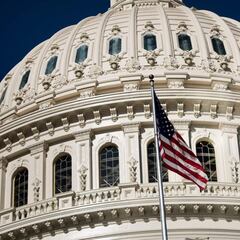Who would be affected by Biden's ‘death tax’? Income threshold and limits
The President's Build Back Better plan includes some key changes to the estate tax which are designed to prevent rich Americans passing down their wealth tax-free.


President Biden has unveiled a number of key changes to the tax system which he says will help to make American society fairer. Since taking office he has pursued a more ambitious agenda than many had expected and that appears to be reflected in his administration’s tax policy.
One of the key changes will be made to the so-called ‘death tax’, which is essentially a capital gains tax applied at death. Also known as estate tax or inheritance tax, Biden wants to prevent wealthy Americans avoiding paying tax on appreciated value when passing assets down to their decedents.
The White House fact sheet claims the new proposals will “eliminate long-standing loopholes, including lower taxes on capital gains and dividends for the wealthy, that reward wealth over work.”
Who would be affected by Biden’s ‘death tax’ rule changes?
As part of his Build Back Better legislative programme, Biden has proposed a number of changes to the estate tax system which he hopes will bring in greater revenue for the IRS. The biggest of which is a reversal of the Trump tax breaks which would lower the heirs’ tax exemption to $1 million in appreciated value for individuals, and $2 million for married couples.
“Biden’s New Death Tax”is a must-read in @WSJ. The elimination of “stepped-up basis” is a massive tax at death and will wreck havoc on millions of Americans who paid off their mortgages and stayed in their homes for decades plus family-owned businesses. https://t.co/UJERFQPjbR
— Hugh Hewitt (@hughhewitt) June 15, 2021
It is estimated that this would see between 2-3% of all decedents hit with the ‘death tax’. As mentioned, the estate tax only applies to the appreciated value on any inheritance passed down. This means that a property initially bought for $1 million, valued at $1.5 million when it is passed down to the heir, would only be taxed on the additional $500,000 of accumulated value.
What are the current rules for capital gains taxes on inheritance?
Currently the estate tax applies when property, cash, insurance, annuities, business interests or other taxable items are transferred at death. The tax rate for this transfer can reach as high as 40% but it is only the very richest Americans who will have to worry about that.
The “death tax” is really a windfall tax levied on living persons in the enviable position of acquiring wealth that they did absolutely nothing to accumulate. https://t.co/ktYPZ1FeaM
— The New Republic (@newrepublic) June 19, 2021
Related stories
In 2017 former President Trump implemented a variety of tax breaks for the rich, which also bumped the amount that can be passed to an heir without paying capital gains tax. Under Trump’s tax rules, an individual can leave their heirs a massive $11.7 million without having to pay estate tax. For married couples, that tax-free amount is doubled to $23.4 million.
With such an astronomically high threshold for the estate tax, very few people ever have to pay it. In 2019, the most recent year for which the IRS has published data on the subject, just 2,570 estates were affected. This means that only the top 0.1% currently has to pay any estate tax.

